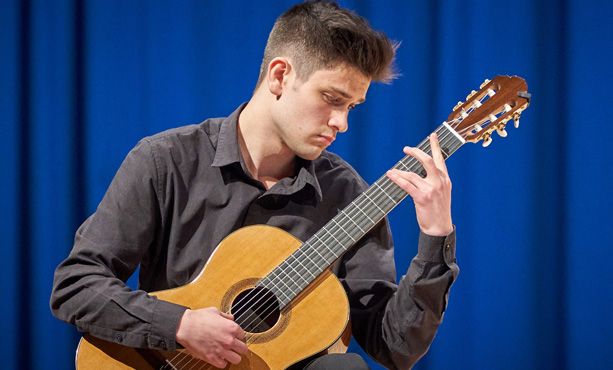Your
Music Year
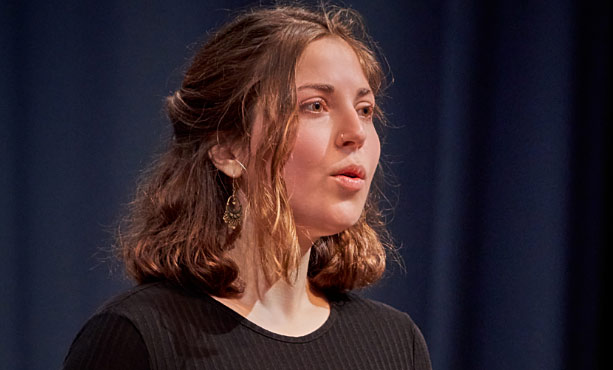
Immerse yourself completely in music during this year and see whether music could become your profession. You have the opportunity to inform yourself about musical career prospects and to test your skills accordingly.
Your
Questions
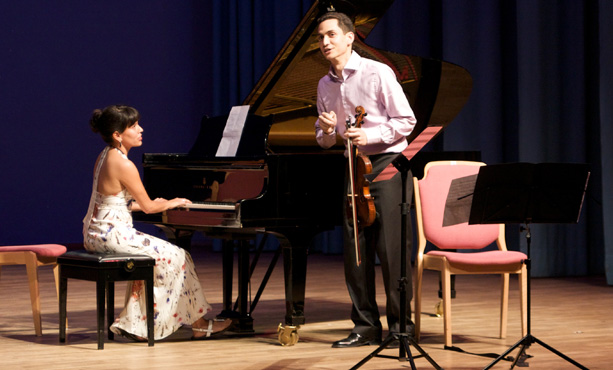
Music can touch so deeply – why? Why can music heal, comfort and awaken joie de vivre? How can I change the world through music? In this year, a human image of music and a musical image of human beings can emerge.
Your
Courses
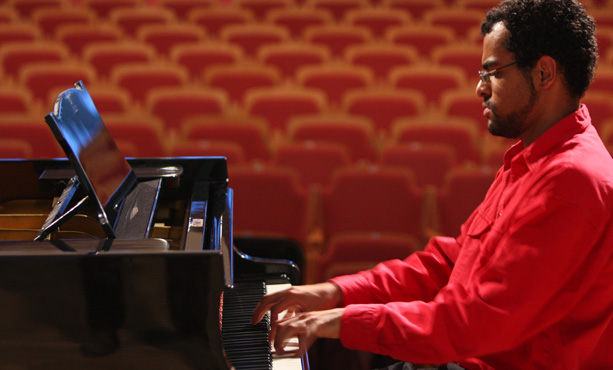
You will receive weekly individual lessons in your main instrumental subject or singing. In addition, there is a wide range of weekly subjects, courses and epochs:

Music Theory | Theory of Harmony | Songwriting | Ear training | Body Percussion | Eurythmy | Conducting | Music History | Drama | Musical Phenomenology | Improvisation | Musical Anthropology

Tell me and I forget, teach me and I remember, involve me and I learn! Benjamin Franklin
Your
Performance
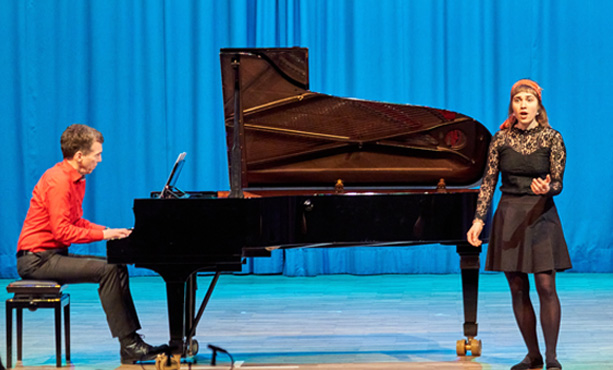
You get a variety of opportunities to perform, e. g. in the final concerts at the end of each trimester. You can practice performing and learn to present yourself authentically.
Your
Application
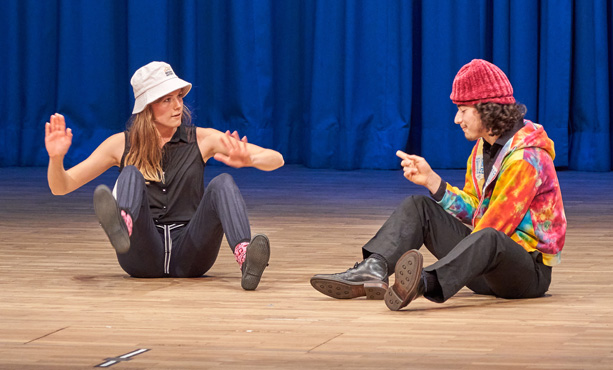
You can find all the information about the entrance exam here.

The admissions process begins with the submission of the application documents:
- Application form
- Curriculum vitae in tabular form
- Photo
- Motivational letter
Please send all your application documents to:
MenschMusik Hamburg
Mittelweg 11-12
20148 Hamburg
GERMANY
After having received your application, you will receive an invitation from us to take the entrance exam.
Entrance Examination
The entrance examination consists of instrumental or singing performance, an oral test in music theory and ear-training, and an interview. There are no prescribed standards of attainment or specific repertoire. They depend on the aims of the individual student and will be discussed in a personal conversation prior to the examination.
Examination dates
June 6, 20, July 18 2023
Further dates can be arranged individually.
Course starting date 2022/23
September 25, 2023
Internship
Sitting in on classes and information talks about individual study opportunities are possible at any time by prior arrangement. Please contact Matthias Bölts directly for this: info@menschmusik.de.
Academic year 2022 / 2023
1st Trimester: September 26 – December 16 2022
2nd Trimester: January 16 – March 31 2023
3rd Trimester: May 2 – July 15 2023

Your
Degree
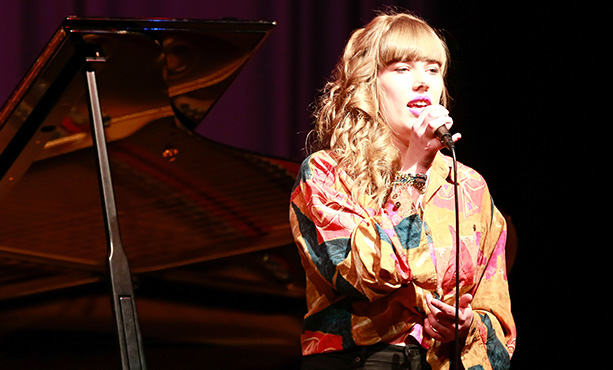
At the end you will receive a certificate. For many graduates, this year forms the basis for their subsequent artistic, educational or therapeutic training or work.
Academic Fees
and Funding
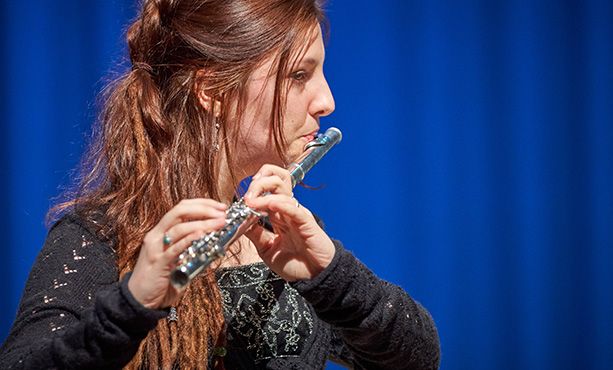
You can find out more about the tuition fees here:

450 EUR/month
1.800 EUR/trimester
5.400 EUR/year
Account details for tuition fees
MenschMusik e. V.
GLS Gemeinschaftsbank eG
BIC GENODEM1GLS
IBAN DE09 4306 0967 2008 6235 00
The Mittel & Wege student funding provides limited interest-free loans. The fund is part of the “Charitable Trust Hamburg” and is managed by students.
Studienfonds Mittel & Wege
Mittelweg 147, 20148 Hamburg
Tel.: +49 40 41 47 62 13
Mail: mittel-und-wege@posteo.de
Web: www.mittelundwege-studienfonds.de

Learn to
Study
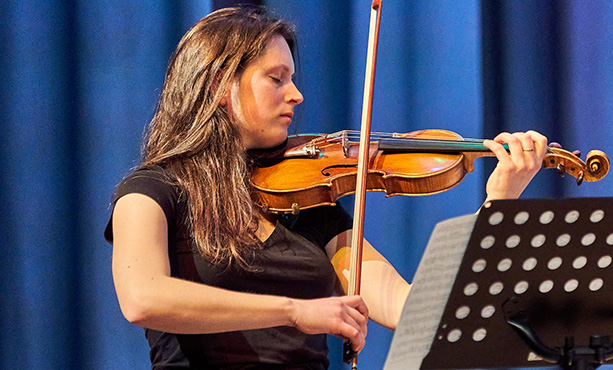
The students turn from participants to co-creators and ultimately to entrepreneurs taking responsibility for their own education.

The focus of the content, the duration of the course and the concrete job description are based on the students’ individual goals and possibilities. They will be accompanied by a mentor.
“One can only learn oneself” – It is not so important for us to tell the students the right thing, but rather that they can find the right thing independently (self-learning competence). Modern forms of learning and reflection serve as tools for this, e. g. portfolio (learning diary), colloquia and mentor talks.
The standards of the learning biography are the goals formulated by the students themselves and the requirements of future professional practice.
Learning becomes a matter of individual will, of one’s own initiative. The goal is access to the source of one’s own learning initiative.

Subjects
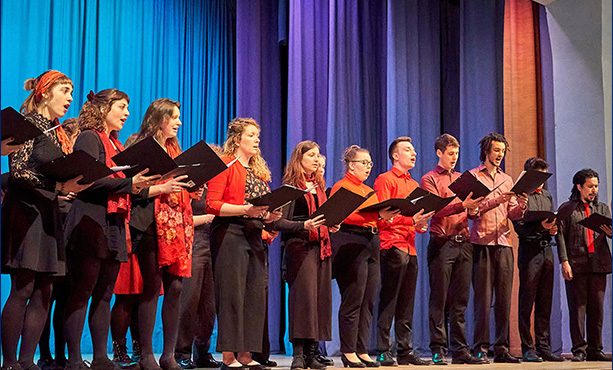
Here you can read what awaits you in the various subjects:

First Study
- Weekly private lesson.
- Intensive artistic work with accompanists.
- Regular stage experience from termly and student concerts as well as individual project concerts.
Minor Subject
- One-to-one weekly lessons.
- For example, piano, guitar or vocals as a supplement to the main subject.
Music Theory
- Basic concepts of general music teaching, e.g., intervals, harmonic series, structure of scales, circle of fifths and tone system, history of notation.
- Harmony (triads, cadences, etc.), tonality and atonality, analysis.
- Organology.
Musical Composition, Songwriting and Composition
- Composing your own melodies in different scales, e.g., pentatonic, church modes, major/minor.
- Harmonizing well-known melodies and writing arrangements.
- Composing your own polyphonic songs.
- Practical use of music engraving software.
- For advanced learners: Linking work analyzes of great composers with arrangements and style compositions.
- Composition: the whole range of creative handling of music that has never existed (like this) before.
Ear Training
- Training of hearing in the areas of melody, harmony and rhythm; Solfège; sight singing; hearing analysis.
- Explore one’s own hearing process.
- Extension of conscious listening to qualitative and meditative listening.
Rhythm
- Phenomena of musical time.
- Rhythm, beat, metre, breathing and pulse, time and silence.
- Practical exercises.
Music history and theory of musical forms
- Musical style and biographies of the composers in connection with their social environment.
- Analysis of the development of the theory of musical forms through various periods based on work analyses.
- Preparation and rehearsals and concert visits to the NDR Symphony orchestra and the Berlin Philharmonic etc.
- Music history as a mirror of spiritual development in the Western culture.
Musical Phenomenology
- A method for qualitatively accessing the various musical elements, such as intervals, musical keys, major/minor and the musical form.
- Start from what can be experienced and observed and explore its effects on your own soul.
- „… Investigate what is, and not what pleases.” – Goethe
Choir
- Choir and orchestra projects.
- Composer portrait concerts.
- Choral voice training.
Conducting
- Directing and guiding a group – Fundamentals of Choral Conducting, e.g., giving cues, conducting different time signatures, showing on and up beats.
- Rehearsal methodology for rehearsing canons and easier polyphonic passages.
- The goal at the end of the one-year basic musical studies is to become a good interpreter and conductor of choir music.
Improvisation
- Dealing with the unforeseen.
- Discovery of your own creativity, play with substance and form elements.
- Vocal and instrumental improvisation on different scales.
Body Percussion, Tap Dance, African drums
- Step dance, African drums, Japanese drums (Taiko).
- Experience moving to rhythm and learning more about your body.
Eurythmics
- Get flowing, become permeable to the music.
- Movement and expression of the music’s inner life.
- Making the inaudible music visible.
Anthroposophy
- Thought and practice dealing with the basic themes of anthroposophy.
- Awareness and perception training, self-development, meditation.
Drama and Theatrical Improvisation
- Learn to move on the stage, stage presence.
- Express mental images.
- Combining with the first study: developing interpretation with the help of mental images.
Musikvermittlung
- Awaken new listening experiences in the audience.
- Becoming an “Ear Opener” for music.
- Training different communication situations: e. g., concert introduction, children’s music summer camp, advanced training course for laypeople.
World Music
- Seminars for getting to know other music cultures and tonalities, e. g., Indian singing, Georgian folk music, South American folklore, Gamelan music from Bali.
- World music as a source of inspiration for composers of the 20th and 21st century.


